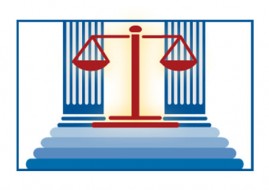Four Ethics Opinions — June 1998
By Roy Simon [Originally published in NYPRR June 1998]
Recently, the New York County Lawyers Association issued an important opinion explaining the circumstances under which a lawyer may seek a client’s advance waiver of future conflicts of interest, and the Nassau County Bar Ethics Committee issued significant opinions regarding a lawyer’s obligation to disclose potentially adverse information to a court or opposing party, obligations to elderly clients, and the right to use client testimonials in lawyer advertising. Following are summaries of these recent opinions:
Advance Conflict Waivers
N.Y. County Lawyers Association Op. 724 (1998): May a lawyer ethically ask a client or prospective client to waive conflicts of interest that may arise in the future? Yes, provided the lawyer complies with DR 5-105(C). Under that provision, it must be “obvious” that the lawyer can “adequately represent the interest of each client, and the lawyer must obtain consent from each client after full disclosure.
At the very least, the client or prospective client should be advised of the types of possible future adverse representations that the lawyer envisions, as well as the types of clients and matters that may present such conflicts… The lawyer also should disclose the measures that will be taken to protect the client or prospective client should a conflict arise. This could include a disclosure of the procedures (for example, an information screen) that would be put into place to protect client confidences…
The amount of disclosure needed to ensure that a client’s consent is informed” depends on various factors. “For example. when the lawyer is seeking an advance waiver from a sophisticated client, such as a large corporation with in-house counsel, the adequacy of disclosure will be put to a less stringent test than if the client were a small business, an individual unsophisticated with respect to legal matters, a child or an incapacitated person.” The lawyer need not predict the precise facts of each future conflict — if that were the rule, “no advance waiver would ever be enforceable… However, even if a lawyer validly obtains a client’s consent to future conflicts, the lawyer “must reassess the propriety of the adverse concurrent representation under [DR 5-105(C)] when the conflict actually arises.” and “if the actual conflict that materializes is materially different from the conflict that has been waived, the lawyer may not rely on the consent previously obtained.”
Disclosure of Adverse Information
Nassau Bar Ethics Op. 98-1 (1998): An attorney represents the plaintiff in a mortgage foreclosure action affecting real property that the client purchased at a foreclosure sale. The client then moved for a deficiency judgment against the borrower, giving the borrower credit for the fair market value of the real estate. The court heard testimony from appraisers for both the client and the borrower as to the property’s fair market value. The court adopted the valuation of the client’s appraiser. However, the client has advised the attorney that “subsequent to the date of the appraisal” the client received an offer to purchase the property for $50,000 more than the valuation adopted by the court. No contract of sale was ever executed, no terms of sale were ever negotiated, and the client still owns the property. Must the attorney disclose the offer to the court or to the borrower? No. The information is protected as a confidence or secret, and DR 4-101(B) prohibits the lawyer from disclosing client confidences or secrets without the client’s consent or some other exception to the duty of confidentiality. None of the exceptions appears to apply here.
Obligations to an Elderly Client
Nassau County Bar Op. 98-2 (1998): What should an attorney tell client when the attorney learns that an elderly client’s nephew (her only living blood relative) is using the client’s power of attorney to give large cash gifts to himself and his family? No Disciplinary Rules are directly on point, so the attorney’s duties are unclear. The Committee’s suggestions are — based solely upon Ethical Considerations, especially EC 7-8, EC 7-11, and EC -12. These ECs suggest that the attorney should make sure that an elderly client is aware of the actions he has been taking (via the power of attorney) and the fact that these actions are depleting her estate so that she may be unable to make all of the charitable bequests set out in her will. The attorney may also wish to ascertain whether the client has the capacity to make her own financial decisions, or whether she is merely taking orders from the attorney-in-fact. Furthermore, the attorney may wish to explore whether his client had the capacity to execute the power of attorney in question, and he may wish to examine the provisions of that power. However, the attorney owes no duty to the beneficiaries of the client’s will.
Client Testimonials in Lawyer Advertising
Nassau County Bar Ethics Op. 98-3 (1998): A lawyer wishes to use dramatized client testimonials in two radio advertisements. One of the testimonials would say:
“I’m a former New York City Police Officer. When I was injured in the line of duty, I went to a neighborhood lawyer, who told he that he didn’t think that I had a case. Then I found out about the Personal Injury Law Firm of [inquiring attorney]. He listened to what I had to say, and always let me know what was going on with my case. When he gave me my settlement, boy, was I glad that I had him on my side.”
The other testimonial would say:
“I’m a New York Telephone Company cable splicer. When I fell off a defective ladder on the job, I went to a lawyer who let my case sit on the shelf for years. Then I found out about the Personal Injury Law Firm of [inquiring attorney].” [The remainder of this testimonial is identical to the testimonial above.]
May the attorney use these testimonials? Yes, provided the client consents, the testimonial accurately reflects the client’s actual words, the advertisement does not use a celebrity actor or actress, the testimonial is not false or misleading in other respects, and the advertisement includes a disclaimer that past results do not guarantee a similar outcome in any future matter.
Roy Simon is a Professor of Law at Hofstra University School of Law and Director of Hofstra’s Institute for the Study of Legal Ethics. He is the author Simon’s New York Code of Professional Responsibility Annotated, published annually by West.
DISCLAIMER: This article provides general coverage of its subject area and is presented to the reader for informational purposes only with the understanding that the laws governing legal ethics and professional responsibility are always changing. The information in this article is not a substitute for legal advice and may not be suitable in a particular situation. Consult your attorney for legal advice. New York Legal Ethics Reporter provides this article with the understanding that neither New York Legal Ethics Reporter LLC, nor Frankfurt Kurnit Klein & Selz, nor Hofstra University, nor their representatives, nor any of the authors are engaged herein in rendering legal advice. New York Legal Ethics Reporter LLC, Frankfurt Kurnit Klein & Selz, Hofstra University, their representatives, and the authors shall not be liable for any damages resulting from any error, inaccuracy, or omission.
Related Posts
« When Complaint Is Filed Against You — How Disciplinary System Works Advertising: Targeted Mailings for Personal Injury & Criminal Clients »








